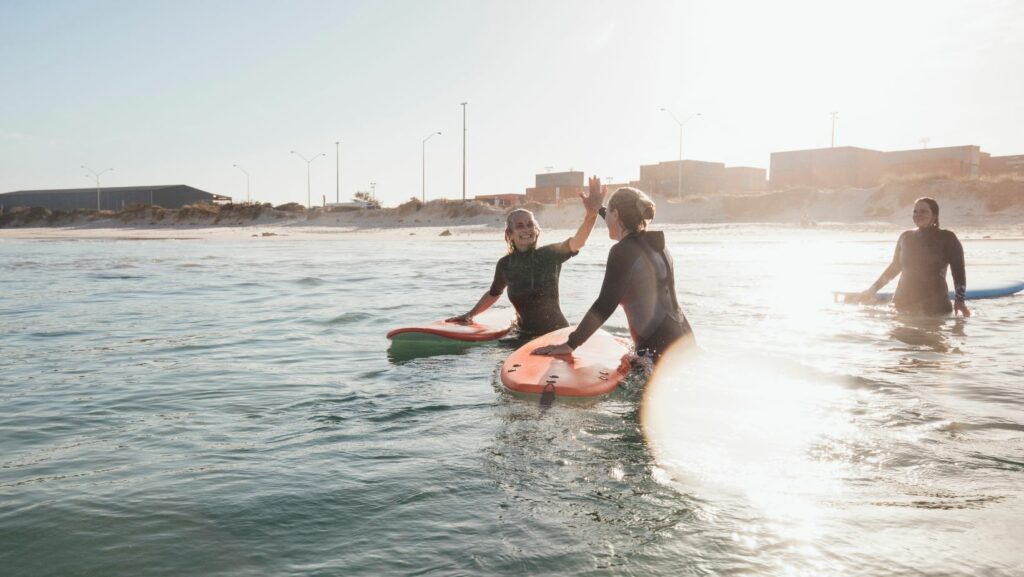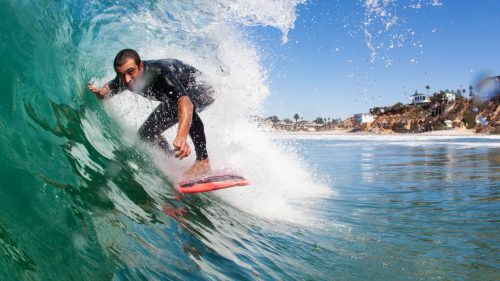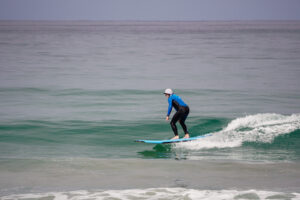
Understand the Basics of Surf Etiquette
Surfing is a sport that is enjoyed by many people around the world. It offers a unique experience that is both exhilarating and peaceful, allowing you to connect with the ocean in a way that few other activities can. However, with this enjoyment comes a responsibility to respect the other surfers in the water and the ocean environment itself. This is where surf etiquette comes in.
Surf etiquette is a set of unwritten rules that govern the behavior of surfers in the water. It is designed to promote safety, fairness, and respect among all surfers, regardless of their skill level. Without surf etiquette, the lineup can quickly become chaotic and dangerous, with surfers cutting each other off, colliding with each other, and generally making it difficult for everyone to catch waves. This not only ruins the experience for other surfers, but it can also lead to injuries and accidents.
As a beginner surfer, it is especially important to learn surf etiquette early on in your surfing journey. Not only will it help you stay safe and avoid conflicts in the water, but it will also earn you respect from more experienced surfers. In this blog post, we’ll cover some of the most important aspects of surf etiquette that you need to know as a beginner surfer. Whether you’re just starting out or you’ve been surfing for a while, these tips will help you become a better and more respected surfer in the lineup.
Surf etiquette is a set of unwritten rules that govern how surfers interact with each other in the water. These rules help to ensure that everyone stays safe and has a good time while surfing. Some of the basic principles of surf etiquette include:
- Priority: The surfer who is closest to the peak of the wave has priority and should be given the right of way.
- Dropping In: Dropping in refers to when a surfer takes off on a wave that another surfer is already riding. This is considered poor etiquette and can be dangerous.
- Snaking: Snaking is when a surfer paddles around another surfer to gain priority. This is also considered poor etiquette and can lead to conflict in the water.
- Respect: All surfers should show respect for each other in the water, regardless of skill level or experience.
Understanding these basic principles of surf etiquette is essential for any surfer, whether you’re a beginner or an experienced pro.

Communicate with Other Surfers
Communication is key when it comes to surf etiquette. Before entering the water, take the time to observe the other surfers and assess the conditions. Look for any hazards or obstacles in the water, and try to get a sense of the surfers’ skill levels and experience.
When you’re in the water, make sure to communicate with other surfers. Use hand signals or verbal cues to let others know your intentions, such as whether you’re going left or right on a wave, or if you’re paddling out.
If you accidentally drop in on another surfer, apologize and make sure to give them the right of way. If another surfer drops in on you, try to remain calm and avoid getting into a confrontation. Remember, everyone makes mistakes, and showing respect and understanding can go a long way in preventing conflicts in the water.

Give Respect to Get Respect
Respecting other surfers in the water is not only good etiquette, but it can also help to create a positive and enjoyable surfing experience for everyone. Even if you’re a beginner surfer, it’s important to show respect for more experienced surfers and give them the right of way when appropriate. By showing respect and following surf etiquette, you’ll earn the respect of other surfers and be able to enjoy the waves in a friendly and welcoming environment.

Be Mindful of Crowded Conditions
When surfing in crowded conditions, it’s especially important to follow surf etiquette and show respect for other surfers in the water. Keep an eye out for other surfers and try to avoid dropping in on them. If the waves are crowded, consider taking turns and sharing waves to ensure that everyone has a chance to catch a wave.
If you’re surfing at a popular spot, be prepared to wait your turn and be patient. Don’t try to snake or cut in line, as this can lead to conflicts in the water. Remember, surfing is a community, and showing respect for other surfers is an essential part of being a responsible and respectful member of that community.
Surf etiquette is not only about respecting other surfers, but also about ensuring the safety of everyone in the water. By following these guidelines and showing respect for others, you can help create a positive and enjoyable environment for everyone.
Remember, when you’re in the water, it’s important to be aware of your surroundings and the other surfers around you. Pay attention to the patterns of the waves and the lineup, and be patient when waiting for your turn. Avoid cutting in front of others, dropping in on their waves, or snaking, which is when you paddle around another surfer to take their wave. These actions can cause frustration and even dangerous situations, especially for beginner surfers.
Another important aspect of surf etiquette is respecting the local community and the environment. Be mindful of the beach and ocean environment by picking up your trash and avoiding littering. Also, respect the local community by following beach rules and regulations, such as parking restrictions and designated surfing areas. Being a responsible and respectful surfer not only helps to maintain a positive relationship with the local community but also preserves the beauty of the natural environment.
It’s also important to show respect and consideration for other surfers in and out of the water. Greet other surfers with a smile or a simple hello, and avoid engaging in aggressive or confrontational behavior. Be patient and understanding, especially with beginner surfers, and offer help or advice when appropriate. By building a friendly and supportive community, everyone can benefit from a positive and enjoyable surfing experience.
Teaching yourself to surf can be a rough road riddled with learning the hard way. Give yourself the right tools and firm foundation today by taking surfing lessons with San Diego Surf School. Our instructors are skilled and experienced to help you succeed. They can teach you not only the fundamentals of surfing but also the importance of surf etiquette. By learning and practicing proper surf etiquette, you can become a more confident and skilled surfer, while also contributing to a positive and respectful surfing community.





